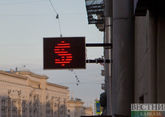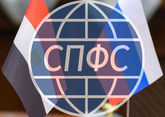The speculation about Russia’s potential disconnection from the SWIFT international payment system dates back to 2014, when the West accused Russia of "aggression" against Ukraine. However, over the past year, these conversations have gained additional urgency. Since about the last year's spring, in the media at the level of the US and EU governments Russia has been accused of being ready to invade Ukraine. Satellite images with concentrations of Russian Armed Forces a couple of hundred kilometres from the Ukrainian border is used as an argument. The West is speaking very seriously about the reality of the Russian invasion, counting days and months.
To prevent a Russian military operation, Washington and Brussels propose a variety of measures, including bringing NATO infrastructure closer to Ukraine, supplying lethal weapons to Kiev, and, most importantly, imposing additional sanctions against Moscow. SWIFT often appears among the "draconian sanctions".
SWIFT is an international organization that controls the global interbank system for the exchange of information on financial transactions. The service gives banks the ability to instantly and securely transfer money to each other.
Recently, the German newspaper Handelsblatt wrote that the US and the EU allegedly abandoned the idea of disconnecting Russia from the international interbank system.The representative of the United States Council objected that such an option wasn't excluded in the event of a Russian invasion of Ukraine. To what extent the United States is ready to use the mechanisms to turn Russia off from SWIFT, Vestnik Kavkaza asked Alexey Zubts, director of the Institute for Socio-Economic Research of the Financial Institute under the Government of the Russian Federation.
The expert is sure that the chances of disconnection from SWIFT are "small" for a number of reasons. Firstly, SWIFT is a non-profit European organization headquartered in Belgium, and the Americans "can't tell it what to do".
Secondly, the calculation of the import of Russian energy resources to Europe is made precisely through this system.
"If Russian banks are disconnected from SWIFT, it is not clear how Europeans will transfer money to Russia for gas and oil or other goods. It is very beautiful on paper: just to disconnect Russian banks from SWIFT, but in reality this will lead to a lot of nuances and details which will be extremely unpleasant for the Europeans themselves.European countries export products worth hundreds of billions of dollars to Russia, and this money needs to be spent somehow. The disconnection from SWIFT is a guarantee that the European manufacturers themselves, as well as the American ones, will have problems with the transfer of money", Zubets stressed.
The economist believes that a threat or even a real shutdown from SWIFT will not force Russia to make concessions, while the commercial damage to European and American businesses will be significant.
The EU and the US link the sanctions lifting to a change in Russian foreign policy. They are seeking Moscow's renunciation of Crimea and the end of support for "separatism" in the Donbass. In turn, Moscow demands that the West stop involving post-Soviet countries in the EU and NATO. In December, the Russian Foreign Ministry handed over documents on security guarantees to NATO and the United States.In January, talks were held in Geneva between Russian Deputy Foreign Minister Sergey Ryabkov and his American counterpart Wendy Sherman, as well as between another Deputy Foreign Minister Alexander Grushko and NATO representatives in Brussels.
Aleksey Zubets noted that there are many other tools for trasmitting financial information apart from SWIFT.
"One can use a phone, fax, email. There is a Chinese system of international payments, there is a Russian system created by the Central Bank in recent years. There are dozens of systems to which any of the Russian banks can be connected. Disconnecting from SWIFT will create certain problems for both Russian and European business, but it will not knock Russia down. From the point of view of long-term problems, this measure against the Russian Federation won't work, but will create problems for everyone. Therefore, the story of shutting down business through SWIFT is unlikely. But even if this happens, there will be no serious damage from it ", he said.
The sanctions initiative had previously been criticized in Germany. According to the leader of the CDU party, Friedrich Merz, it will have negative consequences for the economy not only of Russia, but also of Germany. This is comparable to "an atomic bomb for the capital market, as well as goods and services," he said. The head of the Eastern Committee of the German economy, Oliver Hermes, also warned of significant problems for the European economy. If the disconnection from SWIFT takes place, Russia will strengthen its economic ties with China, he added. The authors of the authoritative American magazine Foreign Affairs also wrote about the ineffectiveness of the measures supported by the US National Security Council.










